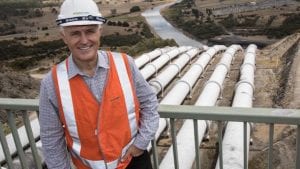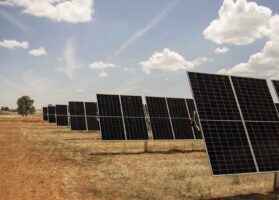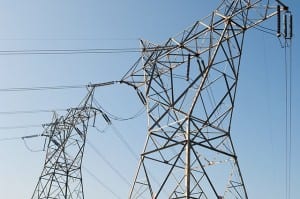AGL Energy has announced it will take a $A150 million, 20 per cent stake in global energy software business Kaluza, as part of efforts to ensure the Big Three gentailer has the flexibility it needs to adjust to the rapidly changing needs of customers who invest in solar, battery storage and electric vehicles.
The multi-year licensing agreement and investment deal, which values Kaluza at around $US500 million, will see AGL transfer its 4 million consumer electricity and gas customer services onto the digitised billing and smart energy management platform over the next three years.
AGL says switching its customers to Kaluza will slash its retail operating costs and capital expenditure by around $70-90 million a year from 2029.
But most importantly, the company says it will give customers access to a proven “energy flexibility” platform built around smart meters, home solar and batteries and electric vehicle-to-grid charging technologies.
“What we’re focused on here is making sure we’re ready to meet customers on their electrification journey, wherever they may be,” AGL’s chief customer officer Jo Egan told Renew Economy on Tuesday.
“On the generation side… of the business we’re focused on delivering a pipeline of renewable and firming assets to support our customer base. …Just as important is supporting our customers to decarbonise, because we won’t reach our collective [climate and energy] ambitions without both of those things.”
Kaluza was founded in 2019 by Stephen Fitzpatrick, as an offshoot of the UK energy retail upstart he founded 10 years earlier, Ovo Energy, and to build a custom designed energy operating system for Ovo and other retailers.
Ovo – which is now the largest independent retailer in the UK, supplying more than 5 million households – first set up shop in Australia in 2019. Two years later, in 2021, AGL acquired a 51% stake in Ovo Energy Australia and then, in April this year, took full ownership of the retailer.
Part of the deal has been AGL’s commitment to invest in Ovo to adapt its platform for Australia, opening up its massive retail customer base to Ovo’s “personalised digital experience,” while also setting itself on a path to regain some of the ground lost through its own stubborn focus on coal.
In Australia, the two companies have had some success with migrating Ovo Energy Australia’s customer base onto the Kaluza platform in 2023, to support more than 80,000 customer services.
As AGL CEO Damien Nicks says, the race to keep up with material changes to technology on the consumer side of the equation has made it “imperative to partner with industry leaders;” much as fellow gentailer Origin Energy has been doing with Octopus Energy, another UK-based smart energy innovator.
“The Kaluza platform will enable new product innovation at speed, while at the same time materially reducing operating costs for AGL’s customer business in the future,” Nicks said on Tuesday.
On the Ovo and Kaluza side of the equation, Fitzpatrick says the companies have had designs on the Australian market since 2018, as a market that is “ahead of the curve” in tackling the intense demands of integrating consumer energy assets onto the grid.
“If you think about all the different types of thermostats or electric vehicles, or batteries and solar panels, and the combination of all of those different options, it makes an incredibly complex landscape for energy retailers to navigate,” Fitzpatrick told Renew Economy on Tuesday.
“You need to build a system for a future that you can’t yet predict.
“You need to build an energy operating system that’s going to allow for product innovation, for consumer choice and, you know, the next product that comes on the market that we haven’t imagined yet, and that flexibility and innovation and openness is something that sets us apart, I think from all of our other competitors.”
One of the more popular offerings through Ovo Energy Australia, so far, has been the electric vehicle charging plan it offers customers, described by one happy customer as a well-designed tariff with a very clear price signal.
AGL’s Jo Egan says the rollout of the EV offering illustrates how “nimble” the Kaluza platform can be in adapting to new markets with new offerings targeting certain behind-the-meter technologies.
“It went from concept to available to purchase for customers in, like, 16 days,” Egan says. “And, you know, through the energy transition, we really need that capability to be able to try different solutions for customers at rapid speed so that we can learn and iterate over time.
“That will be really critical for customer homes, particularly as they electrify and get new devices and products that can be connected to this type of intelligent software that can help flexible load management.
“I think this technology will just give us far greater options and flexibility to scale [our existing virtual power plants] and particularly with with newer products, like EVs, because we’ve seen great success of vehicle to grid in the UK,” Egan says.
See also: How free middle of the day power has changed my EV charing and home heating habits.
h








